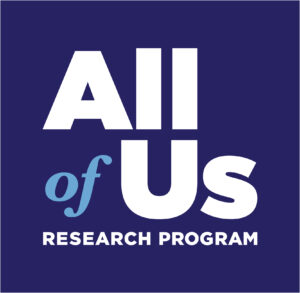The All of Us Research Program has awarded $8.7 million to seven national community partners to strengthen recruitment of participants and researchers from populations that are underrepresented in biomedical research.
As part of the new award, the partners will build networks of community organizations and engage with the program’s healthcare provider organizations and other partners to promote enrollment and recruitment. Additionally, many will engage with researchers from underrepresented groups and help advance the science of engagement.
The seven community partners that have been awarded funding include:
- American Association on Health and Disability (AAHD): AAHD will establish the All of Us Disability Consortium and host a series of listening sessions.
- Asian Health Coalition (AHC): AHC will work with a network of community-based organizations and national organizations and train dozens of program champions.
- FiftyForward: FiftyForward will utilize its centers, partners, and peer ambassadors to conduct outreach and engagement activities to promote enrollment among older adults and address the digital divide.
- National Alliance for Hispanic Health (NAHH): NAHH’s Todos Juntos: All of Us Research Program will conduct outreach and engagement activities to promote the enrollment of Hispanic and Latino communities.
- National Baptist Convention USA Inc. (NBCUSA): NBCUSA will conduct outreach and engagement activities to promote the enrollment of African Americans through its network of more than 31,000 churches with 7.5 million members in 50 states, as well as train health ambassadors through its Health Outreach and Prevention Education (H.O.P.E.) initiative.
- Stanford University: The Stanford University team will conduct outreach and engagement activities to promote the enrollment of sexual and gender minorities (SGM). It will also establish an Intersectional Advisory Group and Adolescent SGM Advisory Group to advance the priorities of the program.
- Baylor College of Medicine: Baylor will engage researchers from diverse backgrounds, including those from underrepresented groups, to utilize the All of Us data resources to advance precision medicine. Its strategies will include coordinating a faculty summit conference, an “Evenings with Genetics” series to engage prospective researchers, and small seed grants for researchers interested in exploring the program’s data analysis platform, the Researcher Workbench.
To date, more than 400,000 participants have enrolled in the program, including more than 292,000 who have completed all the initial steps of the program. Of those, about 80% come from communities that are historically underrepresented in research—racial and ethnic minorities, sexual and gender minorities, residents of rural areas, and other groups.
Edited by Michael Causey



